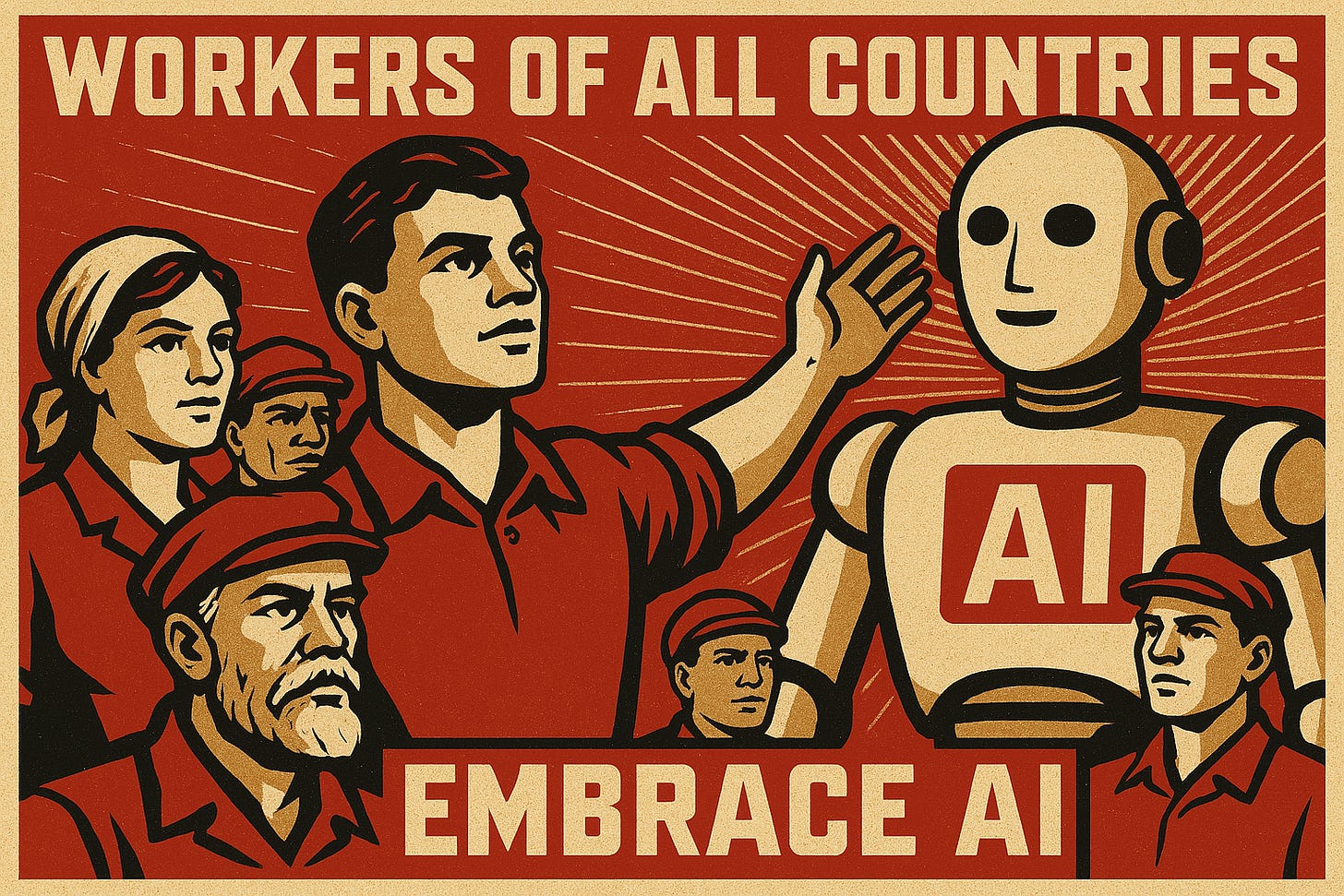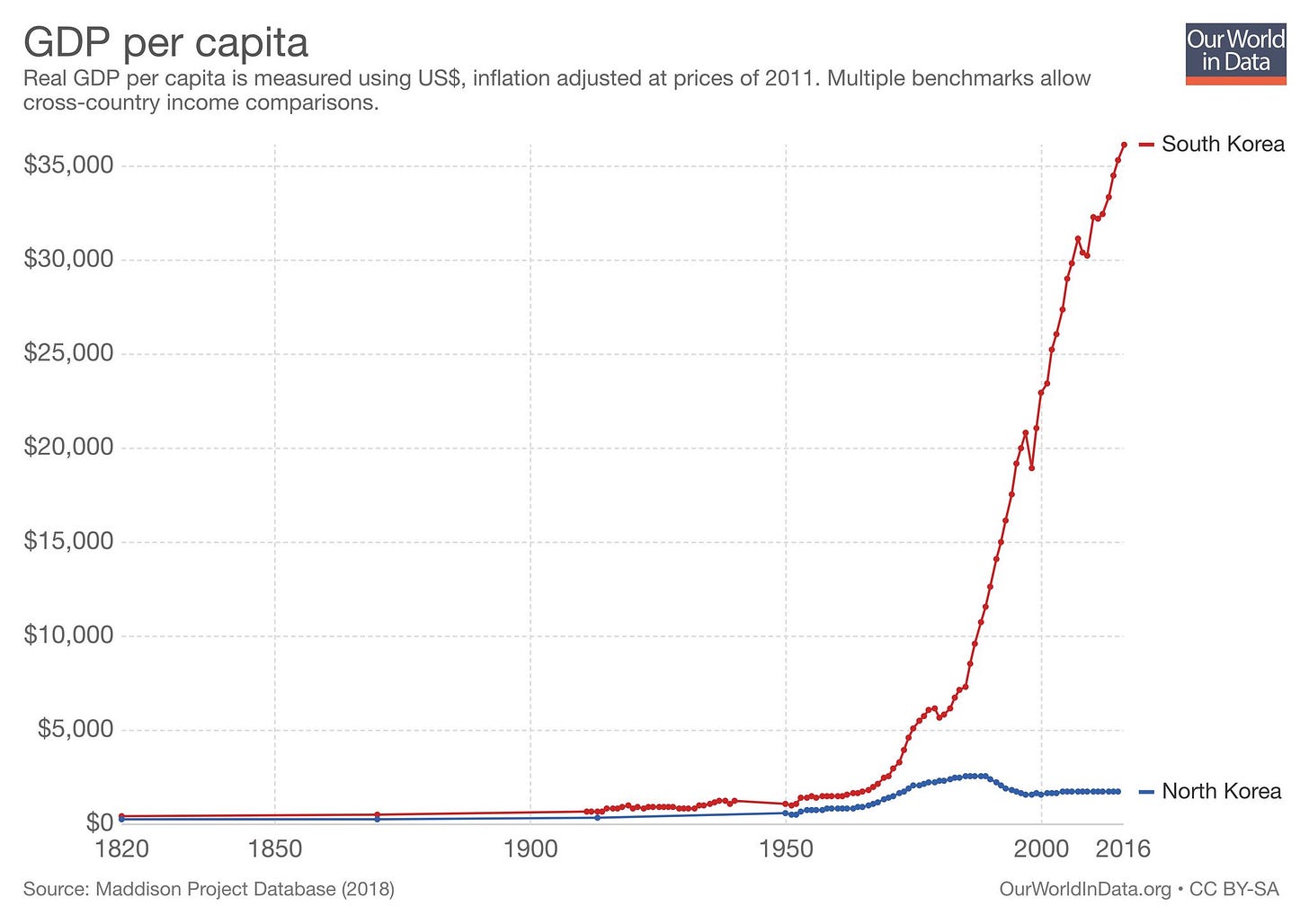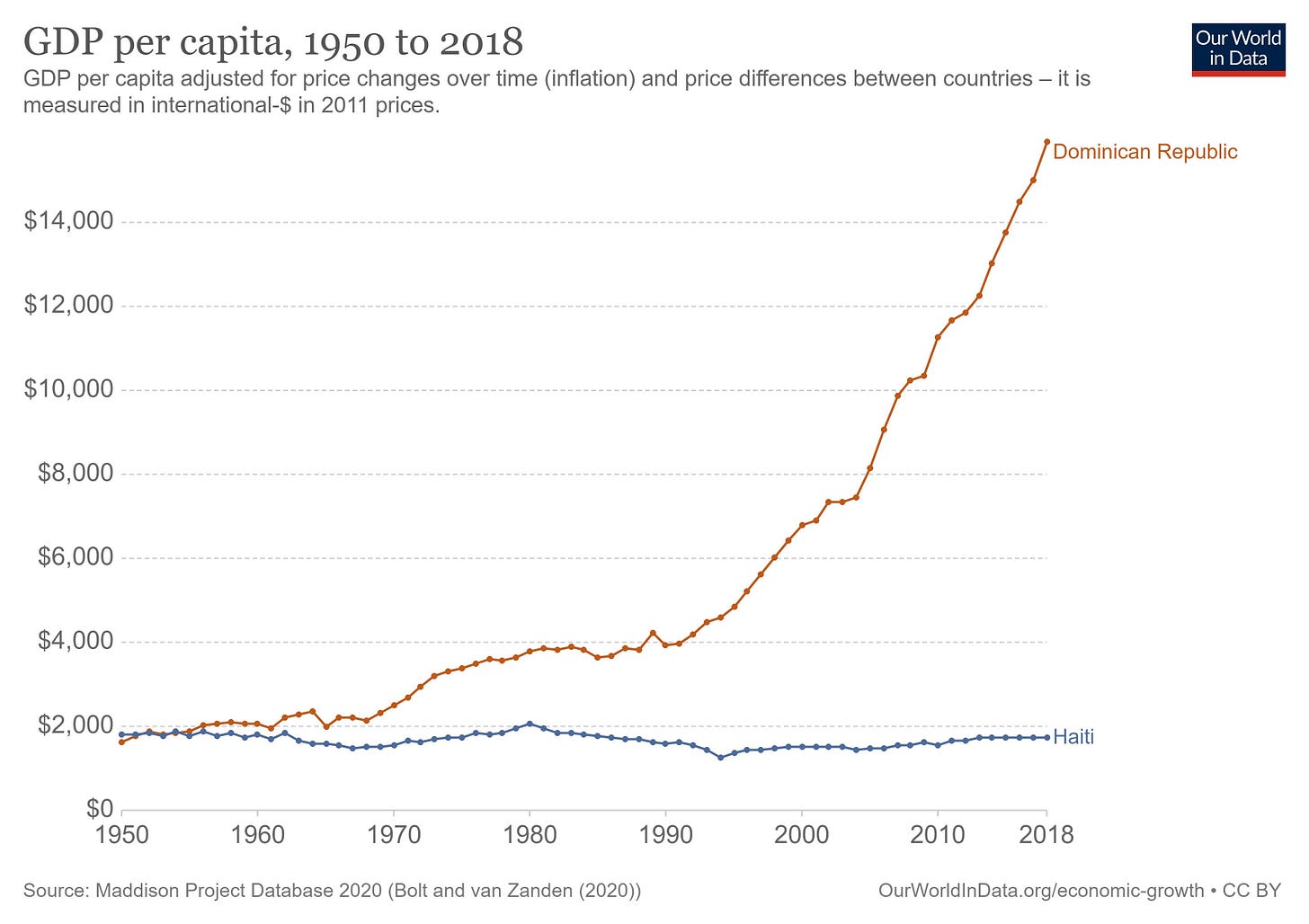AI Disruption and My Soviet Childhood
What my Soviet childhood taught me about the upcoming AI disruption.
There is little doubt in my mind that the next decade is going to be significantly disruptive due to artificial intelligence, particularly concerning employment. We've already begun witnessing AI’s transformative impact in fields like software development, translation, and graphic design.
Just this past week, OpenAI's new image generation model underscored how quickly creative jobs, traditionally thought to be secure from automation, might be overtaken. The only real uncertainties are the scale, speed, and societal adaptability to these disruptions.
Lessons from History: From the Industrial Revolution to Soviet Collapse
Historical analogies are helpful, and most people reach for the Industrial Revolution. Luddites smashing machines capture our imagination: a dramatic response to technological advancement threatening livelihoods.
Society did eventually adapt, but this adjustment unfolded painfully over a century. Workers suffered immensely before labor protections emerged, before skills retraining became possible, and before unions existed. Prosperity rose, certainly, but the personal cost for many was steep.
However, a more recent—and, for me, personally resonant—analogy is the collapse of the Soviet Union. Born and raised in Russia, I vividly remember the confusion and chaos of the late 1980s and early 1990s.
After decades of state-guaranteed employment, people suddenly discovered their skills were obsolete overnight. Jobs once seen as safe, even essential, evaporated as the planned economy imploded. Entrepreneurship, virtually nonexistent under Soviet rule, became a lifeline. Individuals pivoted careers rapidly—from chemistry teachers to market sellers, taxi drivers, restaurant owners, even banana importers from Ecuador. This flexibility was needed for survival.
Hyperinflation destroyed savings, as my own family painfully experienced. I still recall my grandfather taking me to a bank around age eight, hoping to salvage savings deposited at my birth to my account. The money was gone, erased by hyperinflation. I remember him being devastated, and I remember me not understanding what’s the big deal.
Prices soared overnight, rationing was introduced, life savings evaporated, despair ensued—while simultaneously, immense opportunities arose. A few entrepreneurial, resourceful, and resilient individuals thrived spectacularly.1 By the late 1990s, stability gradually returned, though at considerable societal cost.2
Divergent Paths: Lessons from Korea, Haiti, and Singapore
I see a parallel in the upcoming AI disruption. Just as post-Soviet Russia experienced a decade of volatility and reorganisation, I anticipate a similar upheaval now, perhaps even larger in scale and swifter in pace.
Rules and norms that once defined careers will rapidly shift. Jobs considered stable will vanish; previously niche skills might become highly valuable overnight. Some people will suffer immensely, unable to pivot quickly enough, while others will thrive dramatically, seizing new opportunities.
The outcomes, I suspect, will vary significantly by geography and governance, echoing divergent paths we’ve seen in history when hitherto similar countries went in different directions. Consider the stark contrast between North and South Korea, countries starting from similar baselines yet diverging dramatically.
Similarly, Haiti and the Dominican Republic shared an island and comparable economic positions mid-20th century, yet today they differ profoundly in prosperity and stability. Singapore provides yet another example of rapid divergence from its regional peers, leveraging good governance to thrive.
Drawing from these historical lessons, I expect a similar divergence among nations as they encounter AI-driven change. Countries embracing AI aggressively and thoughtfully—providing infrastructure, regulatory frameworks, and retraining opportunities—will surge forward economically and socially. Conversely, those resisting or neglecting AI's potential risk stagnation or decline.
Personal Lessons and Strategies for Adaptation
This leads me to several personal conclusions. First, resilience, entrepreneurship, and adaptability will be paramount. By entrepreneurship, I mean the broader mindset of proactively creating and adapting, not just owning a business. Those capable of quickly pivoting careers, continuously learning, and creatively solving problems will thrive, much like post-Soviet entrepreneurs. Creating our own opportunities and not relying on others to offer us a job is going to be a must-have skill.
It's crucial that our entrepreneurial skills explicitly leverage AI, not merely seeking conventional opportunities like opening another restaurant, but innovatively using AI to redefine and enhance traditional business models. To achieve this, we must deeply understand AI, integrate it daily into our work, and continuously learn about its evolving possibilities.3
Second, geography matters profoundly. If you’re considering moving to a different country at all, you might prioritise nations proactively engaging with AI and committed to redistributing the gains through effective governance. The UK government's recent stance, embracing AI innovation despite protests over copyright, exemplifies this approach.4
Finally, simplicity and low dependency are crucial for individual resilience. Our true necessities—food, shelter, and companionship—cost relatively little. What's likely to harm many is being overly leveraged, trapped in high-paying but fragile jobs needed to sustain expensive lifestyles. High mortgages, costly cars, and exclusive private schools, while desirable, may become liabilities in uncertain times. Those living simply and affordably will enjoy significantly greater resilience.
Embracing the AI Revolution
Six years passed between 1985, when Mikhail Gorbachev, the Soviet leader, announced perestroika and 1991 when the USSR collapsed. During those short years, some people were trying hard to save Soviet Union, sensing the depth of the crisis. Others were hard at work, building entrepreneurial skills because private enterprise was decriminalised in 1986-88. Many just lived their lives, oblivious to the scale of the impending change.
I see parallels with AI today. Some people are trying to fight AI, as if it were possible to put the genie back into the bottle. Others are working hard to learn how to surf this wave, sensing the scale of the upcoming disruption. Most are still, incomprehensibly, pretending that “it’s just a chatbot” and aren’t paying attention.
No, that thin dark line on the horizon is a tsunami.

Much of the wealth creation during that decade was illegal or immoral, and often both. Criminal gangs fought for power and wealth using any means necessary. Yet, my point still stands: those who had an entrepreneurial mindset had a far better chance to survive and thrive than those waiting for things to “get back to normal”.
We can only speculate what could have happened if Putin didn’t come to power and the country continued its development towards a healthy market economy and democracy. We’d all be living in a different world. Sadly, one of the reasons he came to power was that the previous decade was so turbulent, his promise to restore order was too attractive to voters.
This week I learned that AI can act as a recruiter after it found me a candidate I was struggling to source using Sales Navigator and Upwork.
I empathise with the creative industry that’s genuinely threatened by AI, but this battle can’t be won. As a society, we should accept we’ll lose this battle and focus on winning the war. Overall, I think UK is better positioned than many countries in this regard.





